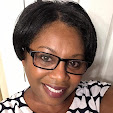
The book, "It's Perfectly Normal,"written by Robie Harris is on the challenged book list of 2007. I knew that this book would offend some parents because of the pictures. And, this is exactly what happened, a parent challenged the book being in the library. However, I thought that this book was appropriate for adolescents. I feel that children need to be aware of the changes that their bodies go through. The book was ONLY a guide to help parents educate their children about growing into adults. And, what better place than a library to house the information for free.
After the review of the book by library staff, the book was put in the branch manager's office. And, at some branches it was reclassified from juvenile to adult.
After the review of the book by library staff, the book was put in the branch manager's office. And, at some branches it was reclassified from juvenile to adult.
According to Carol Hurst's Children Literature website, this book goes where others fear to tread, explaining things like sexual desire, having intercourse, pimples, bras, jock straps, as well as the process of reproduction. The touch is light but informative as it talks about things pre-adolescents and adolescents want to and need to know and it does it with humor and kindness and without cringing. http://www.carolhurst.com/
However, below is an interesting link that opposed the book: http://www.cwfa.org/articles/6122/CFI/family/index.htm

ABOUT THE AUTHOR AND BOOK: Carolivia Herron is an African-American former English professor and the author of the children's book "Nappy Hair." The book tells the story of an African-American family extolling the strength and wonder of young Brenda's natural hair while affirming her beauty and culture. Uncle Mordecai is the principal character who praises Brenda, and Herron has written the following article from the perspective of what Uncle Mordecai would say about the sullying of the word "nappy."(CNN.com)
http://edition.cnn.com/interactive/us/0704/slideshow.herron.reading/frameset.exclude.html




3 comments:
My only comment here is to congratulate you on being fair and balanced. You discussed an issue then you gave links for different points of view. You just don't see that much anymore.
Bravo.
See, the only concern I have with the word "nappy" is that it didn't originate or come from a place of love, acceptance, or pride... It began as a word used to hurt and bring shame to those who had coarse, textured, or "black" hair. Words are extremely powerful and I guess to try and turn it around now and to begin to use it as a "positive" word, I don't think people are really buying it. It's somewhat similar to the other "n-word" in that sense. While I think the writer of "Nappy Hair" had good intentions, I personally do not care for the word. Depending on the context or who is using it, I usually don't get offended though... I'm even somewhat surprised that a teacher almost lost their job for it.
Thanks for your comment. Here's an article that relates to your comment. Interesting read. According to the article, Nappy, a historically derogatory term used to describe hair that is short and tightly coiled, is a preeminent example of how social and cultural ideas are transmitted through bodies. Since African women first arrived on American shores, the bends and twists of our hair have became markers of our subhuman status and convenient rationales for denying us our rightful claims to citizenship.
http://www.boston.com/news/globe/editorial_opinion/oped/articles/2007/04/12/why_nappy_is_offensive/
Post a Comment